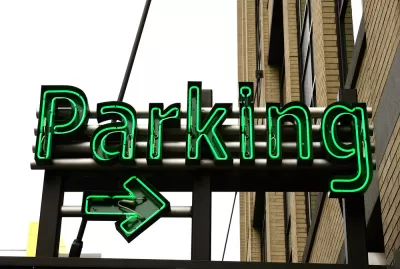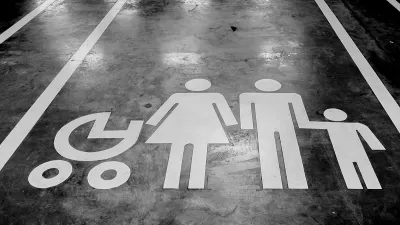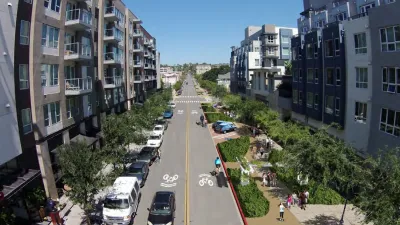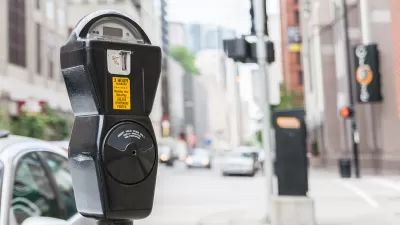Downtown businesses still need a diverse supply of high-turnover parking spaces, argues former downtown San Diego shopkeep, planning activist, and parking guru, Bill Keller.

For three decades, Bill Keller owned a downtown retail business, served on various planning and redevelopment boards, built an expertise in parking issues, and gained the respect of everyone with whom he came in contact. While no parking retrograde, he felt compelled (if somewhat sheepishly) to write an op-ed reminding people, urbanists in particular, that parking still fills an important need in America's downtowns. Keller concedes that residential minimum parking requirements, particularly along transportation corridors, need to be lessened. However, until America's downtowns achieve the density and transit infrastructure to support their retail sectors, parking is still important to providing a diverse mixed-use urban environment.
He also notes that type and configuration are as important as supply. For example, high turn-over and proximity to retail are important. Modernized parking meters that ensure turn-over, accept credit cards, are programmable, and in some locations, offer dynamic pricing—all are important to supporting businesses. In turn, ensuring parking has a reliable and adequate revenue stream to facilitate state of the art, efficient, and effective parking, will not only help retail businesses, but also help to eliminate surface parking lots. By example, he notes:
In Downtown San Diego, for example, street parking has been increased by switching from parallel to angled or perpendicular spaces. And meter revenue will soon be used to underwrite creation of 200 new spaces below East Village Green [underneath the park].
Keller is even able to invoke Jane Jacobs words to support his reminder.
[Jacobs] did say: “There must be a sufficiently dense concentration of people…” And: “The district must serve more than one primary function; preferably more than two. These must insure the presence of people who go outdoors on different schedules and are in the place for different purposes, but who are able to use many facilities in common.”
This result requires some suburbanites, both customers and employees. For Keller's full op-ed, please see the source article
FULL STORY: Why Parking Still Matters in America’s Downtowns

Alabama: Trump Terminates Settlements for Black Communities Harmed By Raw Sewage
Trump deemed the landmark civil rights agreement “illegal DEI and environmental justice policy.”

Study: Maui’s Plan to Convert Vacation Rentals to Long-Term Housing Could Cause Nearly $1 Billion Economic Loss
The plan would reduce visitor accommodation by 25% resulting in 1,900 jobs lost.

Planetizen Federal Action Tracker
A weekly monitor of how Trump’s orders and actions are impacting planners and planning in America.

Study Links Covid and Poor Driving
The effects of the virus, including ‘brain fog,’ can make driving more difficult and dangerous.

Waymo Gets Permission to Map SF’s Market Street
If allowed to operate on the traffic-restricted street, Waymo’s autonomous taxis would have a leg up over ride-hailing competitors — and counter the city’s efforts to grow bike and pedestrian on the thoroughfare.

Parklet Symposium Highlights the Success of Shared Spaces
Parklets got a boost during the Covid-19 pandemic, when the concept was translated to outdoor dining programs that offered restaurants a lifeline during the shutdown.
Urban Design for Planners 1: Software Tools
This six-course series explores essential urban design concepts using open source software and equips planners with the tools they need to participate fully in the urban design process.
Planning for Universal Design
Learn the tools for implementing Universal Design in planning regulations.
Caltrans
Smith Gee Studio
Institute for Housing and Urban Development Studies (IHS)
City of Grandview
Harvard GSD Executive Education
Toledo-Lucas County Plan Commissions
Salt Lake City
NYU Wagner Graduate School of Public Service





























